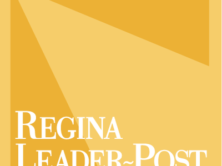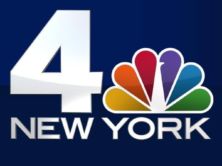Stars and Stripes' ombudsman, Mark Prendergast, pictured above. (Credit: Stars and Stripes)
After complaints by Stars and Stripes’ ombudsman, the Pentagon’s Defense Media Activity retracted a two-week-old memo barring Stars and Stripes journalists from viewing WikiLeaks documents, the ombudsman, Mark Prendergast reported.
Prendergast explained that Defense Media Activity (which “includes” Stars and Stripes) announced the retraction Dec. 21 in an e-mail.
iMediaEthics wrote to Prendergast asking if he was satisfied with the retraction. Prendergast wrote: “Something is better than nothing. That’s just the first step. I presume new guidance will be drafted. I have offered my servces to the Defense Department to consult on those before they are issued, as is called for in my job description. They have not replied to that offer.”
Prendergast had spoken out and refused to have his column published after the Defense Media Activity prohibited the newspaper’s journalists from looking at WikiLeaks documents. Prendergast was also told that his columns would be edited “for spelling and space.”
iMediaEthics wrote to Prendergast asking if his columns would still be edited given that the memo was retracted. He explained: “I am still negotiating that. No standard that I have been offered yet is satisfactory. For the ombudsman to have credibility with the readers, it must be unquestionable that his or her right to publish is inviolate, with the exception of gross abuse of that right by using that space to publish something libelous, obscene, etc.”
“I will not allow the newspaper to do anything to my column other than proofread it in the commonly understood sense of the word and handle the mechanics of placing on the printed page,” Prendergast continued.
“I might, however, ask them to perform additional tasks involved with ensuring what is published is accurate and in compliance with commonly accepted standards of law, propriety and professionalism. But that should be at the ombudsman’s request. I am always open to and encourage suggestions in the name of getting things right. But the ombudsman must have final authority absent some aberration clearly beyond the Pale of professional practice and standards.”
However,in a Dec. 22 editor’s note, Terry Leonard claimed that Prendergast “has never been censored, steered or controlled. And I offer no apologies for adhering to ethical and legal responsibilities in publishing a newspaper.” He further stated that Stars and Stripes’ ombudsman columns “have always been edited with his knowledge and consent for spelling, grammar, space, propriety and legality.”
Leonard went on to explain he will “make no apology for doing what we have always done,” and that neither he nor “any other senior editor” changed or prevented Prendergast’s column’s publication date. Leonard attributed the delay in publication because the story “ran first as an unedited blog.”
As Editor & Publisher noted, Stars and Stripes “is the only Department of Defense authorized news outlet that is guaranteed first amendment privileges.” According to the Stars and Stripes website, the daily newspaper “exists to provide independent news and information to the U.S. military community, comprised of active-duty, DoD civilians, contractors, and their families.”
Prendergast has been ombudsman since Jan. 2009, and is a former New York Times editor.
The Back Story
In a Dec. 18 column, Prendergast didn’t spare any words in his crtiticism of the Defense Media Activity for its restriction against Stars and Stripes .
Calling the directive “don’t read, don’t tell,” Prendergast opined “The editorial independence of Stars and Stripes and its readers’ right to news free of censorship are being threatened by an overly broad and misdirected response to the Wikileaks debacle.”
He noted that the Defense Media Activity had directed employees not to look at WikiLeaks on government or personal computers. The directive read:
“Access to any classified information hosted on non-DoD systems from any government-owned system is expressly prohibited. Additionally, all DMA personnel are reminded that access to classified or sensitive information from any personally owned or publicly available computers also constitutes unauthorized access and is reportable to security personnel.”
Prendergast noted that while the Air Force also banned news outlets like the New York Times, which published the cables, Stars and Stripes staffers were still allowed to visit those websites.
“Putting reporters and editors under strictures intended for keepers of the nation’s secrets contradicts the fundamental purpose of journalism: to seek information, not avoid it,” Prendergast wrote.
He further accused the directive of endangering “editorial Independence and First Amendment freedoms that Congress demanded of the Pentagon for Stars and Stripes two decades ago and then acted to ensure by authorizing an ombudsman to provide “aggressive and objective oversight.'”
He also quoted the previous ombudsman, Dave Mazzarella, about the issue:
“If the Department of Defense is serious about keeping Stars and Stripes a uniquely independent concern, and I think the DoD is serious about that, then it should treat the newspaper’s journalists as the professionals they are. It does not do so when it impedes them from doing their jobs. Forbidding them to read public domain material – classified or not – is dead wrong.”
Prendergast cited Department of Defense directives (available here) that clearly state the Stars and Stripes publication should be run editorially as any other U.S. newspaper. The only exception “provides that only certain classified or sensitive information ‘that is not in the public domain’ already can be ordered withheld from publication in Stars and Stripes.”
But, Prendergast argued that WikiLeaks is in the public domain. And, countering any claims that Wikileaks is “an assault on the country,” Prendergast stated that the information is “already out there.”
“Ignorance is not bliss. It is ignorance. And it is dangerous,” Prendergast lamented.
In a follow-up post Dec. 20, “The Sound of Silence,” Prendergast wrote that “The silence has been deafening from the masthead of Stars and Stripes now 10 days after the government imposed restrictions on the ability of the organization’s journalists to access information widely available to nearly everyone else in the world.”
He also noted that “the cone of silence was partly dropped over me” on Dec. 17 when he was informed that his column “Don’t read, don’t tell” wouldn’t be published as planned. Stars and Stripes’ senior editor, Terry Leonard, reportedly said Prendergast’s columns were “subject to editing.”
“I will not consent to publication of an ‘edited’ version of that or any other column. I will post directly to this blog as long as I have access to it, and if need be, to other venues,” Prendergast stated.
He explained that in the past year, his editorial independence as ombudsman had been re-confirmed, both in June and in an August 2009 organizational letter. In the letter, it was clarified that the ombudsman position, created in 1991 for Stars and Stripes, was made “to ensure that Stars and Stripes’ journalistic efforts remained free of improper influences and that the paper remained balanced, fair and accurate.”
Further, “The role of the Ombudsman at Stars and Stripes carries considerable autonomy. The Stars and Stripes Ombudsman has a right to publish columns in the paper and on our web site without Stars and Stripes management or editorial oversight.”
iMediaEthics asked Prendergast by e-mail if he was the most outspoken critic of the memo. Prendergast explained that he wasn’t the only person against the ban of WikiLeaks viewing, but that he “can’t identify” who those people are. However, he did note that “there has been no formal internal guidance from the publisher or senior editors as to how they should operate in light of the Dec. 10 memo, now rescinded.”
Prendergast stated that Stars and Stripes didn’t publish a notice in the print edition about the memo’s retraction, and that the memo was only reported “buried at the end of a related story on Page 5 several days after they were issued.”
According to Prendergast, the memo’s retraction is only published news on the Stars and Stripes website and Prendergast’s blog (where iMediaEthics spotted it).
UPDATE: 12/23/2010 5:49 PM EST: Terry Leonard, editor of Stars and Stripes, responded to iMediaEthics’ e-mail inquiry.
About the memo, Leonard wrote: “The memo from the DMA was an advisory opinion from its counsel. It was not guidance but instead an attorney’s opinion. It did not itself prohibit or ban anything. My understanding was that it was rescinded, not because of complaints, but because the Department of Defense intends to issue guidance on the issue. That guidance has not been written. Stripes has been asked to provide input in formulating that guidance. But of course no one yet knows what that guidance will say.”
About staff instructions for viewing WikiLeaks Leonard wrote: “I am not prepared to answer this question for I think rather obvious reasons. I would not want to create hurdles for our reporters by discussing what we are doing or what we are thinking prematurely. I think it is fair to say we believe our independence is secure and that we have the authority to report on WikiLeaks materials.”
About the editing of Prendergast’s writing, Leonard explained Prendergast “posts directly without editing to his blog.” but that his printed columns have, like any other opinion page piece, always been “edited for spelling, space, grammar, propriety and legality.” All columns by all ombudsmen for the newspaper have been edited for those considerations, “as far as” Leonard knows, and Leonard stated that he can’t recall Prendergast ever having an issue with it previously.
What has changed, Leonard explained is : “It is, I believe, the first time Mr. Prendergast has sought to have his unedited blog published directly in the newspaper.” Further, Prendergast (and all other ombudsmen) has been shown any “suggested revision” to columns prior to publication for his OK.
Further, Leonard stated: “I am not aware that Mr. Prendergast has ever used the word censorship in his complaints. Certainly I think it would be ridiculous to see anything we have done as censorship. I happen to agree with Mr. Prendergast that any attempt to limit access by any independent American journalists to documents any Taliban could put his hands on is just plain silly. I don’t understand why anyone could even remotely believe I would want to censor such a statement. It defies logic. There is nothing new here. There are no new editing restrictions or requirements. His opinions are his own and he is welcome to have them and express them. No one has ever revised or attempted to revise his opinions. No one has made changes in his columns that were not personally approved by him.”






